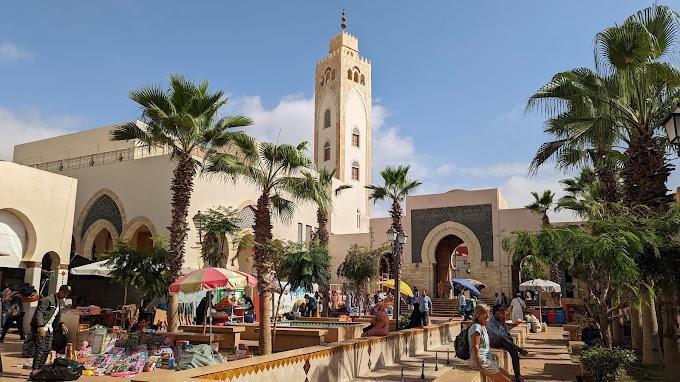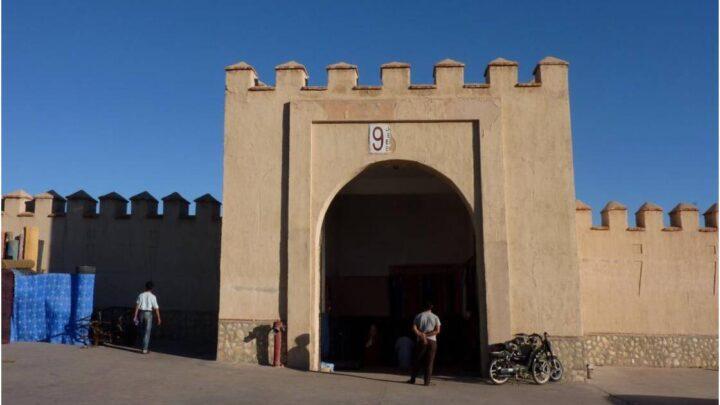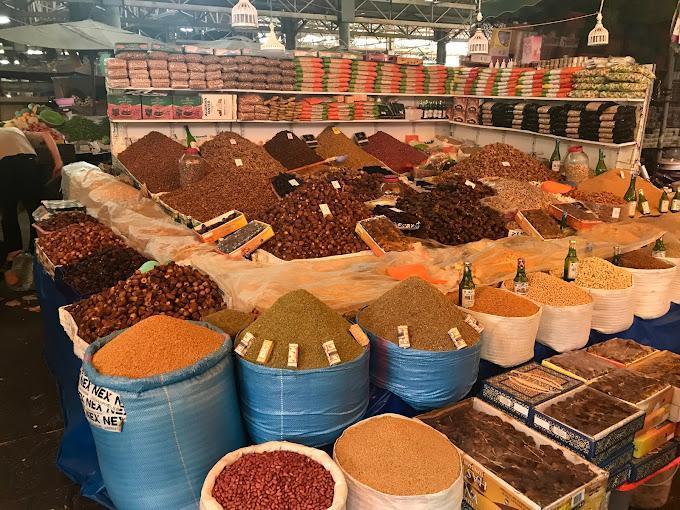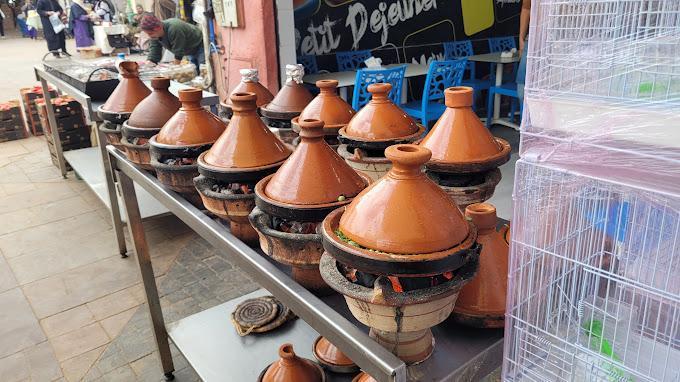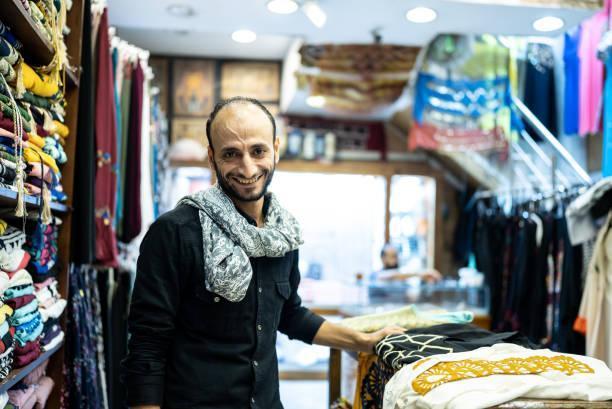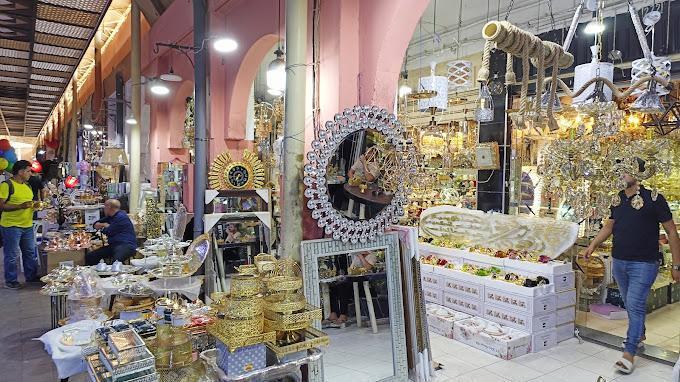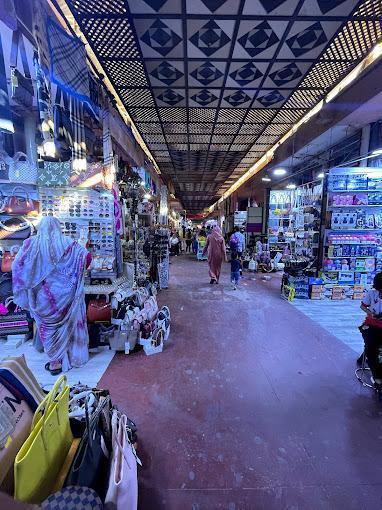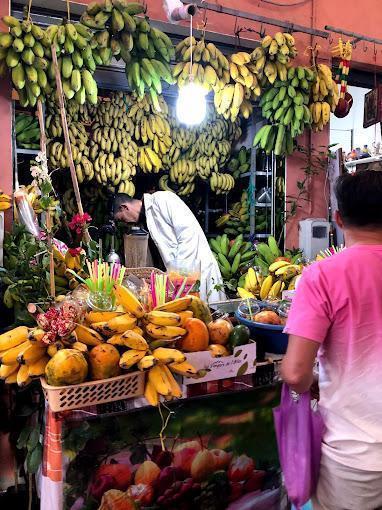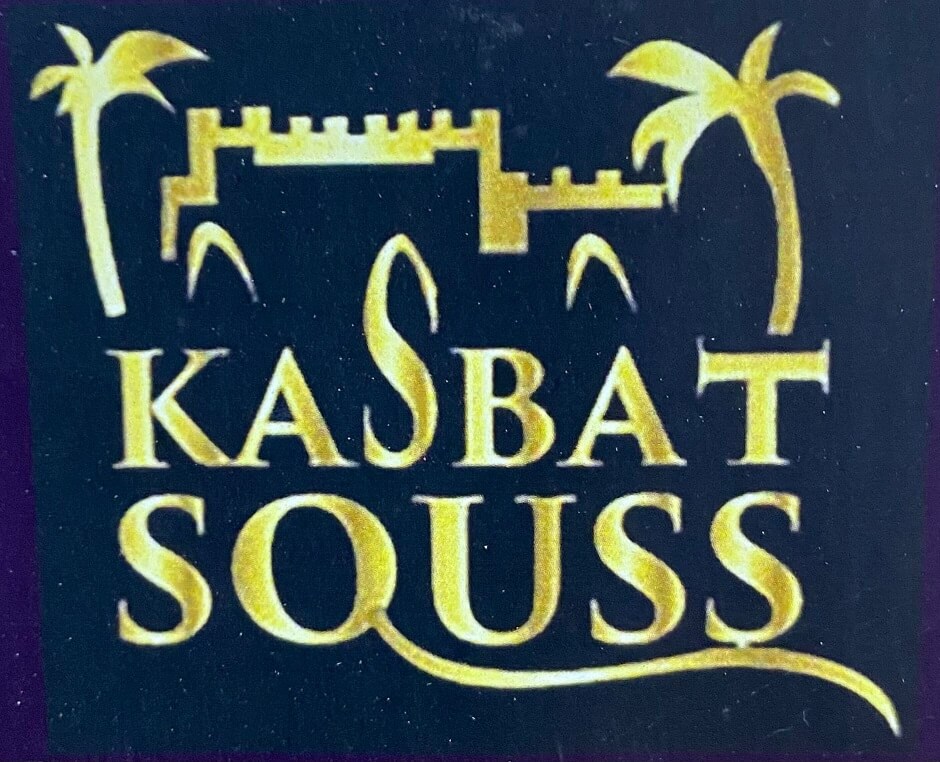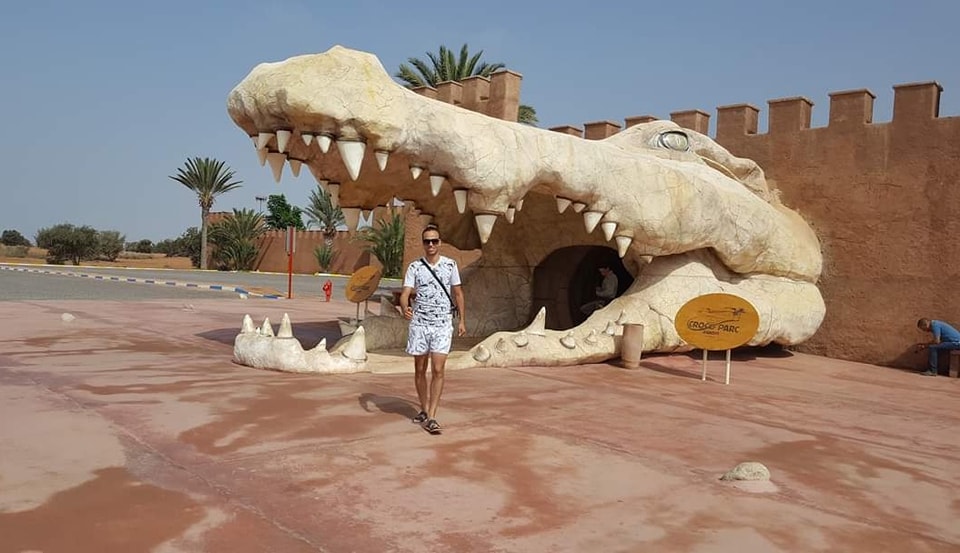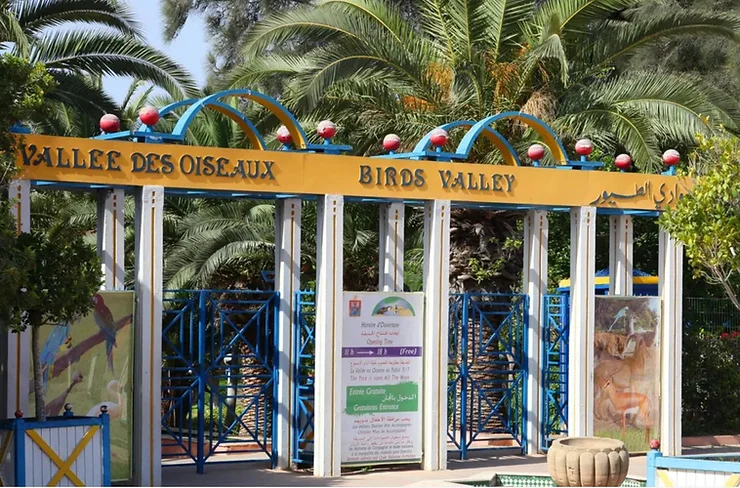Souk el had Agadir :
Welcome to Souk El Had of Agadir, the lively labyrinth of local life. Every alleyway is an invitation to discover, and every stall is a hidden treasure. Are you looking to dive into the fast-paced rhythm of Moroccan life? Then get ready, because this souk is a colorful dance of sounds, scents, and flavors.
Here, every step is a new adventure. You stroll among mountains of juicy fruits and vegetables, you get lost in the alleys of colorful textiles, and you marvel at sparkling jewels and artisan pottery. You will smell the captivating fragrance of spices, the sweet aroma of tajines simmering slowly, and the fresh scent of mint tea. Each stand is like an open window onto the richness and diversity of Morocco.
But Souk El Had is not just a place of commerce. It is a veritable theater of daily life, where you can watch animated haggling. It’s a meeting place, a place of exchange and sharing, where Moroccan charm shines on every street corner.
And when you leave the souk, your arms loaded with souvenirs and your heart full of emotions, you will understand why Souk El Had is considered the beating heart of Agadir.
So, are you ready to explore Souk El Had? Don’t forget your curiosity, your sense of adventure, and, of course, your wallet. The souk awaits you with open arms!
Good Deals Agadir
What is a souk?
Souks have a long history in Arab and North African culture, dating back thousands of years. The word “souk” means market in Arabic, and souks were traditionally marketplaces where traders could sell their goods, such as spices, textiles, jewelry, handicrafts, and much more.
Souks were often located in central and bustling areas of cities and were an important meeting point for locals, visitors, and traders. Souks also played an important role in the history of trade and economy. It was a place of significant commercial exchanges between different African regions and cultures.
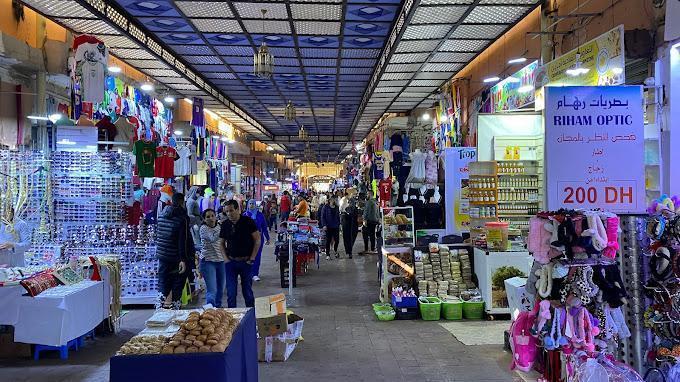
Over time, souks have evolved to include permanent buildings, such as caravanserais and fondouks, which provided accommodation for travelers and traders. Souks have also often been associated with cultural and religious activities, such as festivals, processions, and prayers.
Today, souks continue to be an important part of the culture and economy of many Arab and North African countries. Modern souks may include souvenir shops, restaurants, cafes, and other tourist activities, while preserving local traditions and crafts.
Discover Agadir's Souk
Souk Agadir, its history:
Souk El Had has a special history. It was established in the 1960s to meet the needs of the residents of Agadir and surrounding areas for trade and the sale of local products.
However, Souk El Had was destroyed during the devastating earthquake that struck Agadir in 1960. After the earthquake, the Moroccan government undertook a complete reconstruction of the city, including the construction of a new market.
Today, Souk El Had is one of the largest markets in North Africa, offering a wide variety of local products and souvenirs for visitors. It remains an important place for the residents of Agadir and surrounding areas, who come there for their daily shopping.
Description of the souk's ambiance and atmosphere
Are you looking for an authentic Moroccan experience?
Head to the Souk El Had in Agadir! You will discover a lively and warm atmosphere, full of colors and intoxicating smells.
This is the perfect place to discover local craftsmanship, with its pottery, carpets, jewelry, and much more.
You will also find a variety of spices and aromatic herbs, as well as leather clothing and accessories.
Moroccan culinary specialties to discover at Souk El Had Agadir
But Souk El Had is also an opportunity to discover Moroccan gastronomy.
Taste the delicious tajines and couscous offered by the various catering stands.
Try traditional Moroccan pastries, such as gazelle horns or msemmens (pancakes).
And of course, don’t forget to taste a glass of mint tea, served with generosity and friendliness.
Negotiating Prices
In Morocco, price negotiation in the souks is a real way of life and an essential part of the shopping experience. Sellers are often willing to negotiate, especially if you are buying multiple items or if you are a loyal customer.
However, it is important to negotiate in a respectful and friendly manner, keeping in mind the fair value of the products and the work of the craftsmen or traders.
Indeed, negotiation is often seen as a game, where everyone tries to find a satisfying agreement for both parties.
However, it is good to know that some products have fixed prices, such as fresh fruits and vegetables.
So, are you ready to become a master of negotiation in Moroccan souks?
If you are looking for souvenirs, it is important to verify their authenticity. Many sellers sell imported or mass-produced products, rather than local handicrafts. This is unlike the Kasbat Souss.
How to get to Souk El Had Agadir?
The Souk El Had of Agadir is one of the most lively and colorful places in the city. It’s very easy to get there.
The simplest way is to take a taxi, the cost is really very low.
There are many options to reach this must-visit market in the city. (bus, bike, scooter,…)
When you arrive, you will immediately be immersed in a unique and enchanting atmosphere.
Streets filled with colorful stalls, artisan products, and tempting smells.
And if you get a little lost in the alleyways, don’t worry, it’s perfectly normal! It’s part of the authentic souk experience.
Enjoy every moment of your visit and discover all that Souk El Had has to offer.
In summary, Souk El Had of Agadir is an unforgettable experience for the senses.
You can discover the wonders of Moroccan culture and enjoy the legendary hospitality of Moroccans.

